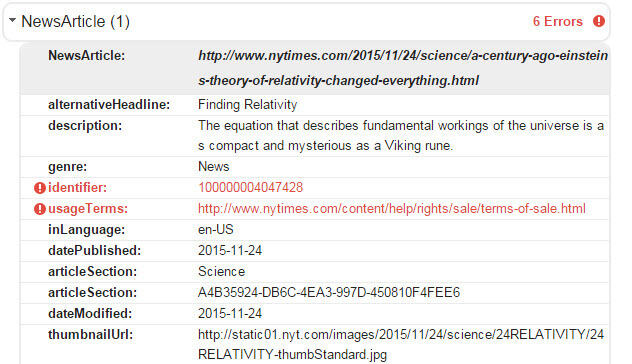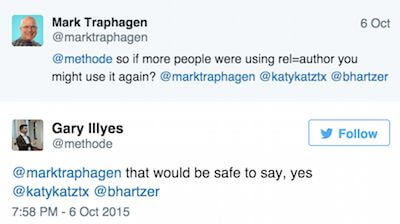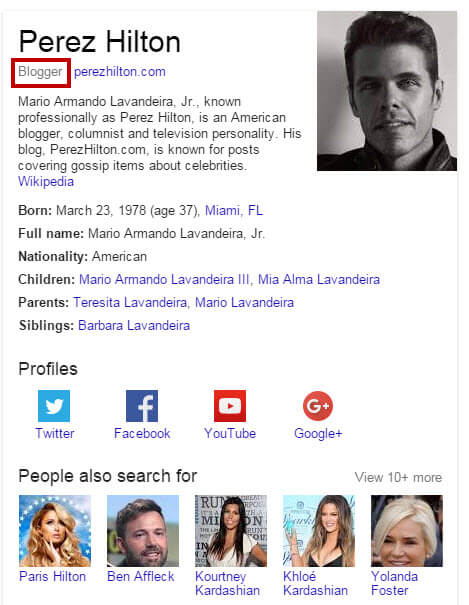How To Build Author Rank Without Google Authorship
Google's Authorship program may be dead, but that doesn't mean you shouldn't work on building your authority. Columnist Tony Edward explains.
By now, we all know that Google Authorship is dead; John Mueller made the announcement in August 2014.
However, at SMX East 2015, Google’s Gary Illyes said that webmasters and publishers should leave Authorship markup on their page. In a recent Twitter conversation, he also hinted that Google may bring back Authorship — no promises, of course.
Also, it seems Google has started to sunset Google+ which means Google+ profiles may not be around for long. So what is going on here? Why the confusion? Why would Google remove the authorship feature and then recommend leaving the markup on place?
Well, if we try to read between the lines of what’s happening, it seems that while Authorship is dead, Author Rank is not. Google may be recommending to leave the Authorship markup in place because it still drives some level of author signals. It could also mean they may be exploring a new Authorship-like feature, though at this point, we can’t count on that.
So in a post-Authorship world, how can authors build their Author Rank and authority? This can be done by leveraging schema.org’s Person and Article markup and/or by attempting to become an online entity.
In the announcement made by Google’s John Mueller about discontinuing support for Authorship, he highlighted the following:
Going forward, we’re strongly committed to continuing and expanding our support of structured markup (such as schema.org). This markup helps all search engines better understand the content and context of pages on the web, and we’ll continue to use it to show rich snippets in search results.
So Google is placing more importance on structured data. Gaining a Knowledge Graph result means you have become an online entity, which results in a certain authority. Here is an example of blogger Perez Hilton’s Knowledge Graph result.
Structured Data For Authors
Implementing Schema.org Person and Article markup on your content can help build your Author Rank. Marking up your articles and author profiles will not only help Google better understand the content but also feed into the Knowledge Graph. I recommend the following:
Mark up your articles with Schema.org Article markup. Depending on the content type, you can get more specific — there is markup available for news articles, reports, scholarly articles, social media postings and tech articles. (And be sure to check out Google’s resource page for article rich snippets.)
Example Article Markup

To view the full markup, click here.
Leverage Schema Person markup, highlighting the author element. This markup should be placed on the article page, as well as the author’s profile page. Here’s an example of author profile page: https://searchengineland.com/author/tony-edward
Example Markup On An Article Page
<body itemscope itemtype=”https://schema.org/Article”>
<div>
<h1 itemprop=”name”>How To Build Author Rank Without Google Authorship</h1>
<p>By <span itemprop=”author” itemscope itemtype=”https://schema.org/Person”><a href=”https://searchengineland.com/author/tony-edward” itemprop=”url”><span itemprop=”name”>Tony Edward</span></a></span></p>
<p>[Article body]</p>
</div></body>
Example Markup On An Author Profile Page
<div itemscope itemtype=”https://schema.org/Person”>
<h1><span itemprop=”name”>Tony Edward</span></h1>
<p><img src=”/images/authors/TonyEdward-lg.jpg” itemprop=”image”></p>
<p>Tony Edward is a <span itemprop=”jobTitle”>Senior SEO Manager</span> at <span itemprop=”worksFor”>Elite SEM</span> and an <span itemprop=”jobTitle”>Adjunct Instructor of Search Marketing</span> at <span itemprop=”worksFor”>NYU</span>. He leads the SEO team at Elite SEM’s New York City office. Tony has been in the online marketing industry for over seven years. His background stems from affiliate marketing and has experience in paid search, social media and video marketing.</p>
</div>
Work Towards Becoming An Online Entity
Take steps to become an online entity and gain a Knowledge Graph entry. You can accomplish this by doing the following:
- Create a Wikidata.org profile.
- Attempt a submission to Wikipedia.org.
(Click here for full instructions.)
I would also recommend building citations where possible. Do not spam — rather, look for opportunities where you can insert a profile about yourself and your work. For example, you could build a profile on CrunchBase and link to your work under the News section:
In closing, keep your Authorship markup in place, as Google recommended, but start leveraging structured data to help boost your Author Rank, and work towards becoming on online entity.
Opinions expressed in this article are those of the guest author and not necessarily Search Engine Land. Staff authors are listed here.
Related stories





